Block Dude and the Lost Gaming Legacy of the TI-83 Plus
The legacy of a dude and his blocks
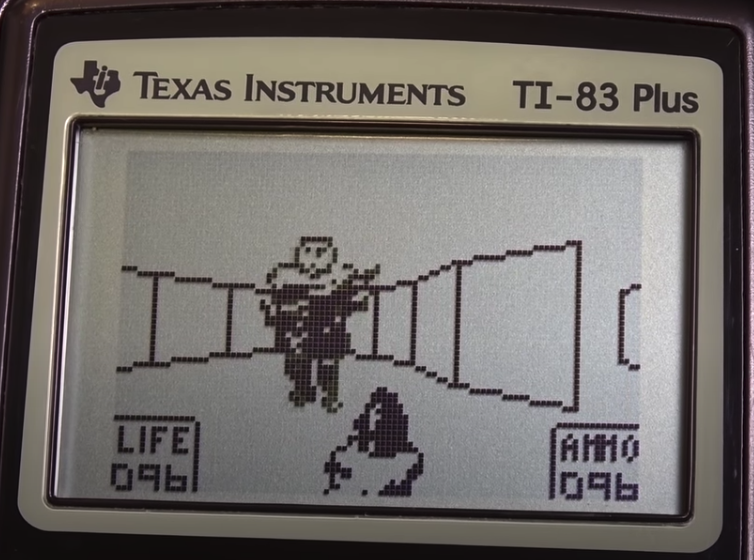
The turn of the millennium was a banner time for video games in many ways, with exciting games seemingly around every corner.
2000 saw the launch of the PS2, which would become the best-selling console in history. A number of classic titles were released in the console's first two years, including Final Fantasy X, Metal Gear Solid 2, Jak & Daxter, and Tony Hawk's Pro Skater 3. The next year, Nintendo brought handhelds into the next generation with the Game Boy Advance, leading with a number of beloved titles such as Advance Wars, Castlevania: Circle of the Moon, Golden Sun and Mega Man Battle Network. And let's not forget the second generation of Pokemon which came out the year before.
The game that was most popular in my high school at the time is nowhere on this list. It was Block Dude, a barely animated monochromatic puzzle game made to use all the power of a calculator. I had the dubious honor of being the only person in my class who ever finished it.
Of all the strange nooks and niches in video game history, graphing calculator games might be the most overlooked. Unless you came of age in a very narrow time frame, the significance of the TI-83 and its descendants probably missed you completely. Yet in a strange way, Texas Instruments played a small but important role in the democratization of video game development.
So let's take a look at Block Dude and the environment that created it.
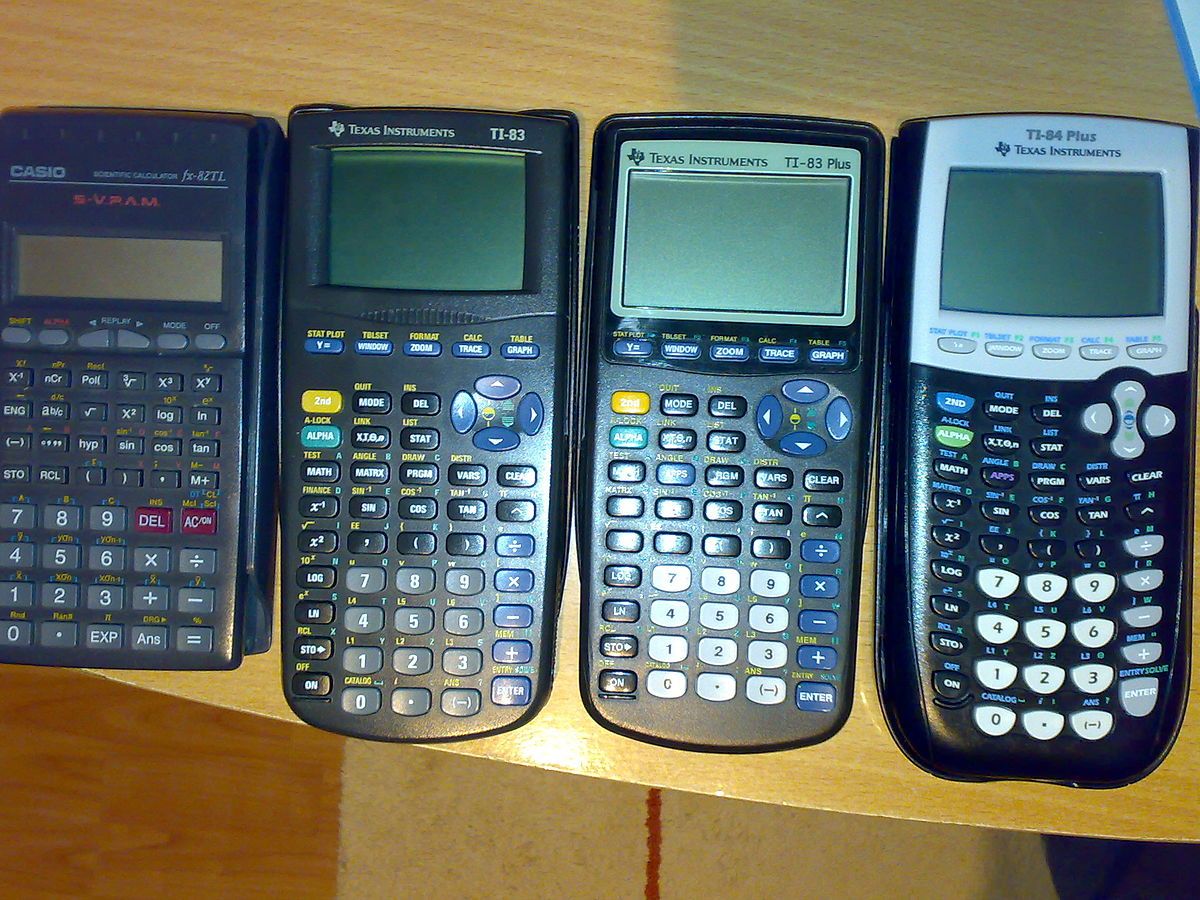
In 1990, Texas Instruments released the TI-81, the first in a line of Zilog Z80-based programmable graphing calculators. The increasing availability of what were essentially pocket-sized computers yielded a new group of people dedicated to expanding their functionality. One of the most prolific calculator programming groups was the TI Calculator Programming Alliance (TCPA), a loose collective of programmers active from 1998 to 2001. The TCPA was best known for programming a series of simple games for the TI-83 Plus, which was fast becoming a popular model for students.
One of the best known members of the TCPA was Brandon Sterner. Sterner was the chief programmer on a number of TI-82 and TI-83 games, including adaptations of Nintendo titles such as Tetris Attack and Yoshi. However, he also produced an original puzzle game called Block Dude. The goal was to help the protagonist - who could climb but not jump - reach a stage exit by carrying and stacking blocks.
In 2000, Jeff Kovacs - another TCPA member - released the PuzzPack, a Flash-based application for the TI-83 Plus. This was an all-in-one package that included Block Dude, altered versions of Tetris Attack and Yoshi (redubbed Puzzle Frenzy and Dino Puzzle respectively), and the game Pegs which had been developed by TCPA member Fred Coughlin. The PuzzPack was popular enough that it attracted the attention of Texas Instruments, who wanted a new version that they could use to promote an upcoming line of calculators.
PuzzPack 2.0 was released in 2001 by Detached Solutions, a software company founded by Kovacs, Sterner and several other former TCPA members. If you're at all familiar with the PuzzPack, this is probably the version you've played. It was very widely distributed and can be found on TI-83 sites to this day.
That's the history of Block Dude, which leads to an obvious question: Is it any good? To which I can only answer...what exactly are you expecting?
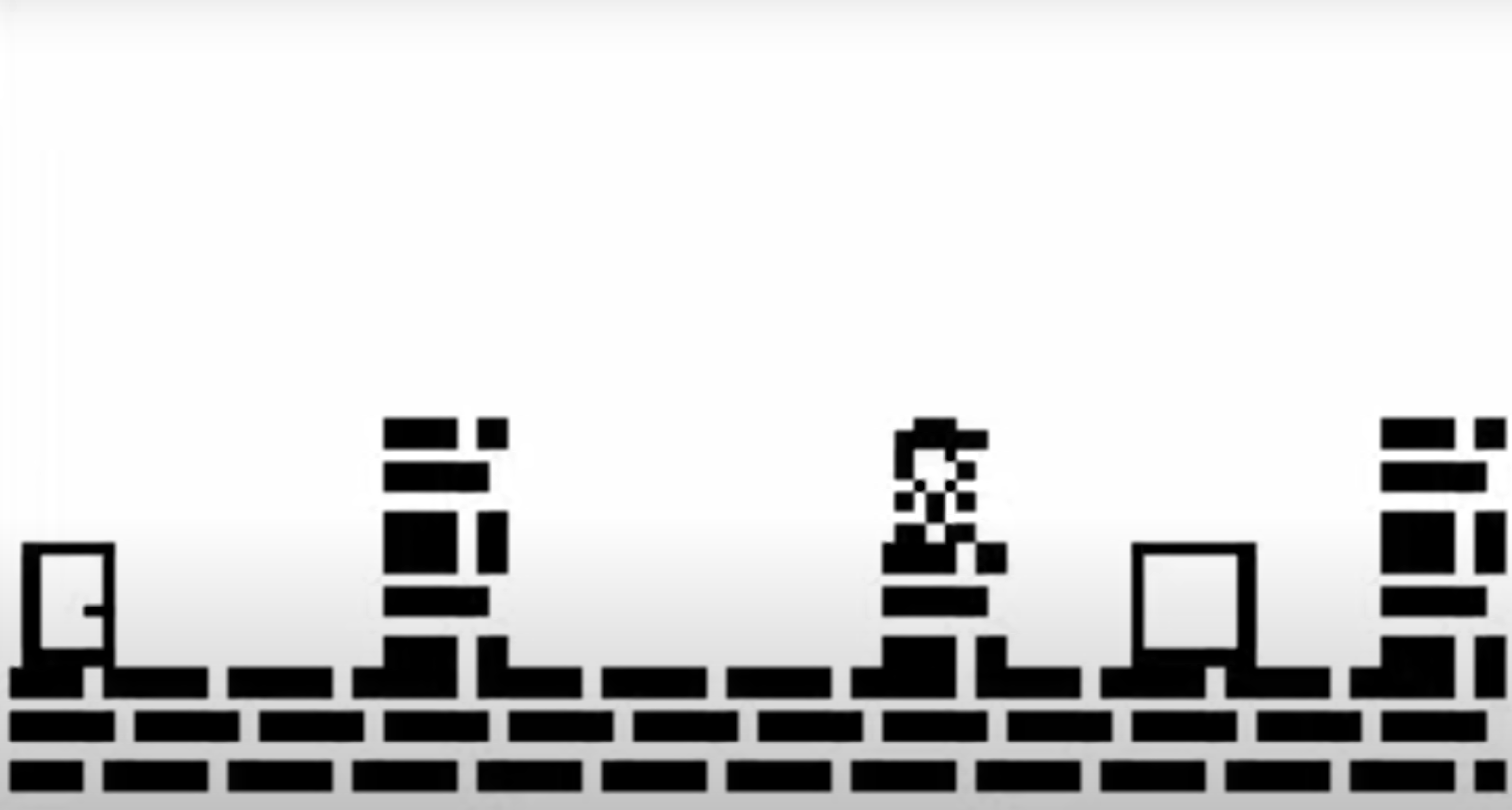
On paper, the TI-83 Plus is a more capable device than the Game Boy, sporting a processor with a faster clock speed and significantly more RAM. In theory, then, it shouldn't be too hard to create (or recreate) a Game Boy-quality game on the calculator.
But then there's the catch: The Game Boy was designed to play video games, while the TI-83 Plus was never meant to do anything but perform mathematical calculations and draw graphs. One can imagine putting, say, blackjack on such a system, but a platformer was always going to be more of a reach.
I say all of this to make sure that your expectation are sufficiently low.
On both a mechanical and graphical level, Block Dude is an incredibly simple game. The gameplay loop consists of moving blocks from one side of a room to another to build little staircases that the protagonist can then scale. There is virtually no animation - the screen is laid out as a grid, and moving the protagonist simply transposes him from one square to another, possibly moving the camera if this moves him up or down.
Given what video games were like in the early 2000s, the popularity of something like Block Dude is at first hard to explain. Maybe it was nothing more than the experience of it - the simple thrill of being able to play a game on the sly in the middle of class without anyone knowing. On the other hand, maybe a simple game can be as fun as a complex one.
Not that calculator games stayed simple forever, mind.
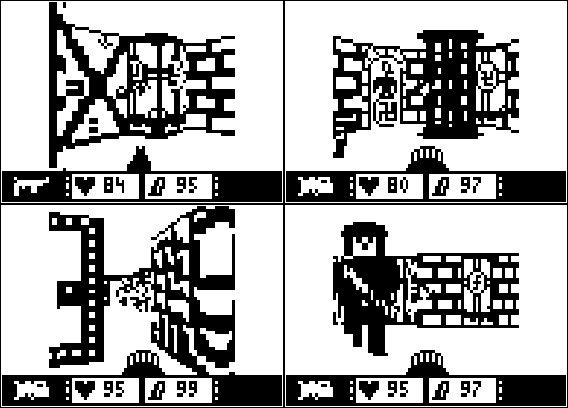
The fact that someone (indeed, many someones) would attempt to recreate Mario Bros. on a graphing calculator shouldn't be too surprising. The fact that someone crammed a version of Wolfenstein 3D onto a TI-83 Plus is a little bit more remarkable. And a weird calculator version of Smash Bros. with actual sprite scaling? That's just a miracle.
As calculator gaming gained steam across the 2000s, developers released several Flash shells that enabled the TI-83 Plus to run programs far more sophisticated than the basic software would allow. Other programmers put these shells to work making ever more complex games. These included a wide range of adaptations of Game Boy, NES, SNES, PC and arcade games, but also entirely original RPGs and first-person shooters.
The more powerful TI-89 brought with it a range of new possibilities, including ever more accurate recreations of titles that appeared on other systems. The most remarkable addition to the TI-89 lineup was an actual Game Boy emulator. Should you grow weary of playing reproduced Game Boy titles, you can always amuse yourself with a Pokemon run.
But even with all of this, there were still people who remembered where it all started. The TI-89 saw several remakes of Block Dude designed with the superior hardware in mind. One dedicated soul even made a version of Block Dude with a built-in level editor, a tool that we always wanted even if we weren't aware of it.
This suggests that for fans of graphing calculator games, Block Dude was more than an amusing distraction. There was something special about this primitive puzzler on an unlikely platform, something that resonated with those who played it for years to come.
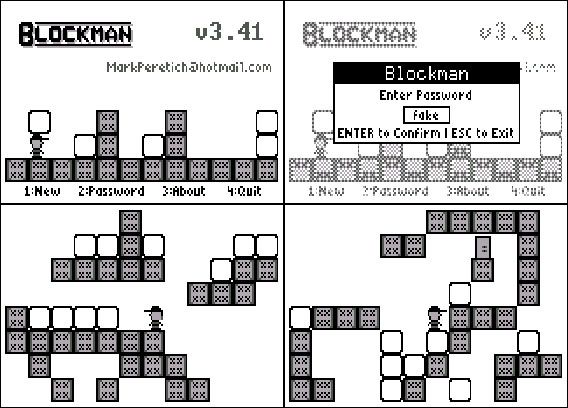
Block Dude came out at a time when computer ownership was not standard, especially in rural communities like mine. For many of my peers, the graphing calculator that they were required to own was the first programmable device that they ever had.
That right there may be the root of Block Dude's popularity. The game was never impressive by its own standards, but it represented something interesting: the power of the amateur.
The games I mentioned at the top of the article were produced by large teams of experts with access to ample resources. Block Dude, the games of the PuzzPack, and whatever else one might have downloaded off a TI game site were produced by individuals working on their own time. These were the hidden indie gems of their day, and while there was a certain mystique to knowing about them, it was much more exciting to imagine creating one.
I knew a lot of people who got into computing via the TI-83 Plus. Most of them never developed any calculator games - they started with far simpler programs for automating simple tasks. But for a select few, this did offer an entry point into the development of video games at a time when there were few options available.
Someone out there played Block Dude and was later inspired to make a platformer or puzzle game of his own. That's the real legacy here - what this crude little title taught us.
